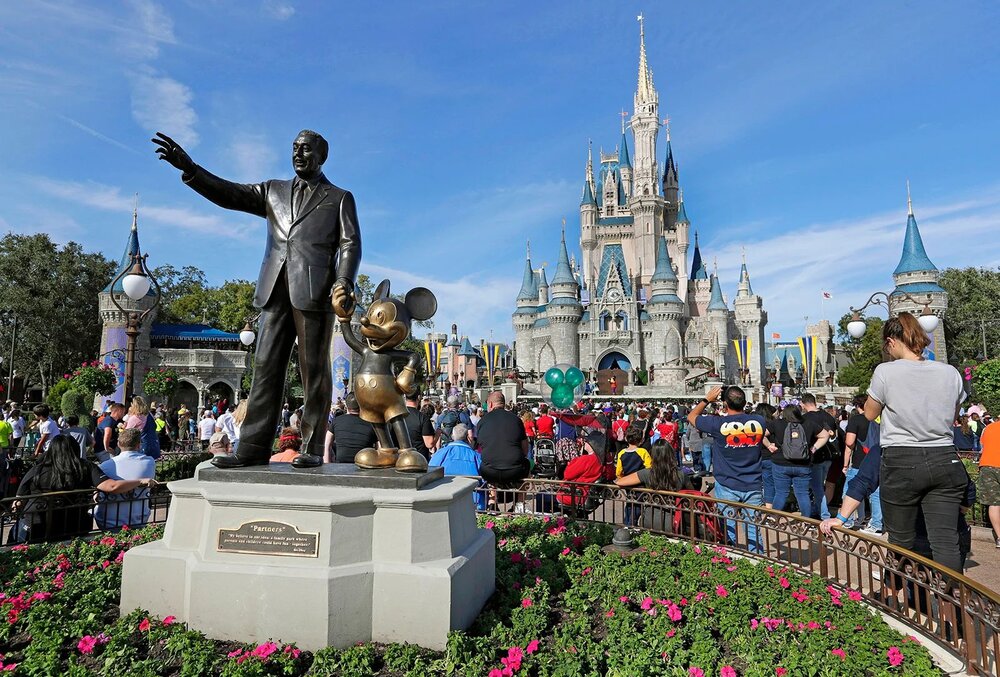Hawzah News Agency – Pastor D.J. Jenkins’ daughter, Piper, turns 13 in less than two weeks, and she is going to Disneyland.
It won’t be the first time: The Jenkins family has an annual pass to the theme park about 40 miles south of their Studio City, California, home.
“I haven’t seen anyone from a pastoral position or a leadership position in a Southern Baptist entity saying anything about ‘Southern Baptists need to speak out against Disney,’” said Jenkins, 41, who leads a small Southern Baptist congregation called Anthology. “The younger people don’t want to do that.”
Jenkins’ reading of his colleagues indicates a truce of sorts in Southern Baptists’ sometimes tortuous relationship with the Disney company. In 1997, Southern Baptists declared a boycott of Disney after the company began providing insurance benefits to employees with same-sex partners, continued airing ” Ellen” after its host came out and allowed organizations to host “Gay Days” at Disney parks.
”You can’t walk the family side of the street and the gay side of the street in the Magic Kingdom at the same time,” said Richard Land, then head of the Southern Baptist Convention’s Ethics and Religious Liberty Commission.
Other conservative religious groups glommed on, including Focus on the Family and the American Family Association. Christian broadcaster Pat Robertson warned the city of Orlando that God would target Disney World with hurricanes.
Now the culture war is calling again. Florida Gov. Ron DeSantis last week signed a bill that aims to strip Disney of its self-governing authority in and around Walt Disney World in Orlando. The new law, which goes into effect next year, is aimed at punishing the entertainment giant for denouncing a new Florida law that restricts classroom instruction on sexual orientation and gender identity through the third grade.
The Rev. Franklin Graham was all too eager to blast Disney for having “gone too far” in submitting to LGBTQ activists.
“Walt Disney had a vision for wholesome family entertainment,” Graham, 69, wrote in a Facebook post on Saturday (April 23). “He was committed to the family. The morals of the corporate leadership of Disney today are in the gutter, and they want to redefine family counter to God’s original design and flaunt sin.”
Other problem areas for evangelicals are Disney’s move to quit welcoming guests at theme parks with “ladies and gentlemen, boys and girls” in favor of “dreamers of all ages,” taken as a nod to gender fluidity, and summer films that depict a loving lesbian couple and other LGBTQ characters.
But as the SBC prepares to gather for its June annual meeting down the road from Disneyland in Anaheim, many younger Southern Baptist pastors, while holding the same traditional positions on gender roles, seem less than willing to jump headlong into a new battle with Disney.
“We have bigger fish to fry and more important things to deal with right now,” said Dean Inserra, pastor of City Church, a large Southern Baptist congregation in Tallahassee, Florida.
Ahead of the annual meeting, convention organizers are offering discounted Disneyland tickets, and a Southern Baptist spokesperson said more than 100 have been sold so far. (Some 5,300 “messengers” or delegates, guests and exhibitors have preregistered for the conference.)
A coalition of conservative pastors within the Southern Baptist Convention issued a statement earlier this month calling on Southern Baptists to “choose another family activity rather than support the anti-biblical agenda now clearly present within the Disney corporation.” But the Conservative Baptist Network did not called for a boycott.
“I don’t sense a national movement to boycott Disney,” said Dan Darling, director of Land Center for Cultural Engagement at Southwestern Baptist Theological Seminary in Fort Worth, Texas, though he suggested that some individual Southern Baptists might.
Some of the indifference may come from the sense that boycotts don’t work: After eight years of shunning Disney two decades ago, the company has only grown stronger and more popular. Its empire has only expanded with the purchase of ESPN and ABC, the History Channel, National Geographic and many other brands. Today Disney makes about $70 billion in annual revenue.
Rather than bringing Disney to heel with sanctions, DeSantis’ stance may be aimed at least in part at evangelicals who may look to him as a potential 2024 presidential candidate.
“DeSantis is governing in a way that a lot of evangelicals think he takes our concerns seriously,” said Darling.
But Pastor Jenkins said he didn’t think younger evangelicals wanted to fight Disney in the old ways, anymore, even if they may cheer DeSantis on personally.
“I think gender issues really matter in our culture — what does it mean to be compassionate toward people yet hold a firm, traditional, biblical understanding?” said Jenkins. “But people are wary of stepping into the culture wars. It may play well to go after Disney in some circles. But I don’t see that among my friends.”


Your Comment